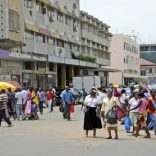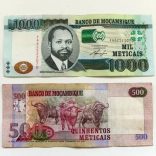Mozambique: New leaders at APIEX, IPEME, ICM and ARA-Centro sworn into office
World Bank says Mozambique must restructure public debt

Progress in Mozambique’s debt restructuring negotiations is critical to restoring fiscal stability and curbing the accumulation of arrears to creditors, the World Bank said in a recent report on the country.
The “Economic news in Mozambique”report, dated July 2017, said that a commitment by the authorities to pursue policies that help Mozambique create tax-dampening systems and make a habit of long-term management of public finances are equally important to restoring sustainability.
Such a policy agenda would involve pursuing objectives leading to a primary surplus (before interest) and a long-term sustainable debt profile as well as reforms to strengthen the legal frameworks for debt management and fiscal risks of public and other public sector enterprises, the statement said.
Also Read: Mozambique is increasingly “A two-speed economy” – World Bank Economic Update
The World Bank report says that 2017, “after a difficult 2016,” has been a year with better news for Mozambique in terms of both currency and inflation, with gross domestic product (GDP) growing 2.9% in the first quarter, more than double the figure observed in the previous quarter.
“The strengthening of coal, aluminium and gas prices, agricultural recovery and progress in peace talks could drive growth to reach 4.6% in 2017 and 7.0% by the end of the decade,” the report said.
But despite these improvements, the Mozambican economy remains exposed to significant risks, as many of the forecasts are linked to developments in the extractive industry, “with fluctuations in commodity prices posing major risks to the economy.”
Also Read: Extractive industry decisive for public revenues – World Bank
The World Bank recognised that monetary policy remained firm and helped to bring about a significant adjustment in the external sector but noted that Mozambique’s benchmark interest rate is currently among the highest in sub-Saharan Africa.
“Commercial bank average interest rates, on the order of 30%, are prohibitive for much of the private sector,” the report said.
To support the private sector, whose businesses and numbers have doubled since 2002, the report said macroeconomic stability must be restored through a balanced mix of monetary and fiscal policies.
Also Read: World Bank sees Mozambique’s economic growth at 4.6 percent in 2017












Leave a Reply
Be the First to Comment!
You must be logged in to post a comment.
You must be logged in to post a comment.